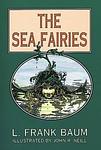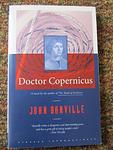John Banville
John Banville is an acclaimed Irish novelist and screenwriter known for his precise, cold, forensic prose style and his dark themes. Born on December 8, 1945, in Wexford, Ireland, he has been recognized for his work with numerous awards, including the Man Booker Prize in 2005 for his novel 'The Sea'. Banville is also known for writing under the pen name Benjamin Black, under which he has published a series of crime novels. His works often explore the themes of human identity, memory, and the intersection between imagination and reality.
Books
This list of books are ONLY the books that have been ranked on the lists that are aggregated on this site. This is not a comprehensive list of all books by this author.
-
1. The Sea
"The Sea" is a profound exploration of memory, grief, and loss. The novel follows the story of a widower who returns to a seaside town where he spent his childhood summers. His present-day experiences are interwoven with memories of a transformative event from his youth involving a wealthy family he befriended. As he grapples with the loss of his wife to cancer, he also deals with the haunting memories of the past. The narrative is a deep dive into the human psyche, exploring themes of love, loss, and the fluidity of time.
-
2. Birchwood 1973
"Birchwood 1973" by John Banville is a haunting and introspective novel that delves into the complex lives of the inhabitants of Birchwood House. Set in Ireland during the 1970s, the story follows Gabriel Godkin, a troubled young man who becomes entangled in a web of family secrets and personal demons. Through lyrical prose and vivid descriptions, Banville explores themes of identity, memory, and the lasting impact of the past on the present. As Gabriel navigates the enigmatic world of Birchwood House, readers are taken on a mesmerizing journey that blurs the line between reality and imagination.
-
3. The Book Of Evidence 1988
"The Book of Evidence" is a gripping psychological novel that follows the life of Freddie Montgomery, a wealthy and educated man who turns to a life of crime. After committing a brutal murder, Freddie flees to Europe, where he reflects on his past and contemplates the nature of guilt and identity. Through his introspective and unreliable narration, the book delves into themes of alienation, obsession, and the complexities of human nature, leaving readers questioning the boundaries between truth and fiction.
-
4. The Book Of Evidence
The novel is a dark and introspective tale of guilt and psychological turmoil, narrated by a convicted murderer reflecting on the events leading up to his crime. The protagonist, a dispassionate and unreliable narrator, recounts his life of privilege, his descent into a disaffected existence, and the impulsive theft and subsequent murder that land him in prison. As he attempts to construct a logical narrative of his actions, the reader is drawn into a world where the boundaries between truth and fabrication are blurred, revealing the complex layers of the human psyche and the elusive nature of reality.
-
5. Doctor Copernicus
"Doctor Copernicus" is a historical novel that delves into the life of the renowned astronomer Nicolaus Copernicus. Set in the 16th century, the book explores Copernicus' journey from a young boy growing up in Poland to his groundbreaking discovery that the Earth revolves around the Sun. As the protagonist grapples with his scientific findings and the implications they have on his faith and the world around him, the narrative also delves into his personal relationships, inner struggles, and the societal and political context of the time. Through vivid prose and meticulous research, the novel offers a captivating exploration of one of history's most influential figures.




